
How to choose commercial kombucha brewing equipment?
With the rise of kombucha in the beverage market, the demand for commercial production is also increasing. Commercial production not only requires efficient brewing speed, but also requires ensuring the hygiene and safety of the production process while maintaining the original flavor. In order to ensure that each batch of kombucha can maintain stable quality
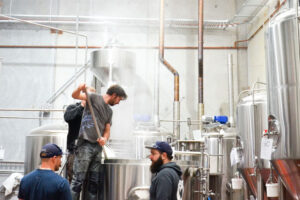
Characteristics of high-quality brewing equipment
Brewing is a long-standing and high-tech process. From ancient manual brewing to modern large-scale industrial production, the advancement of brewing equipment has continuously promoted the development of the beer industry. High-quality brewing equipment can effectively improve production efficiency, ensure the quality of beer, and maintain hygiene and safety during the production process. This article will
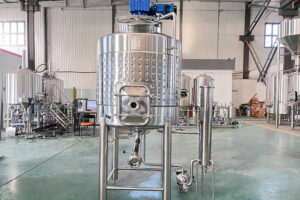
1000L coffee fermentation tank production completed
Coffee fermentation tank is a stainless steel container specially used for coffee bean fermentation process, which can control and optimize fermentation conditions and improve the flavor and quality of coffee. This equipment has a capacity of 1000L and can meet large-volume production. There is a self-sealing yeast addition port on the top of the equipment,
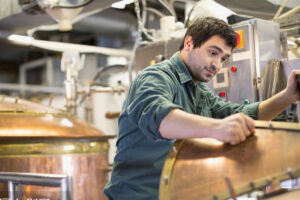
Advantages of small distillation equipment
In modern industrial and laboratory production, distillation, as an important separation and purification technology, is widely used in chemical, pharmaceutical, food, beverage, and other fields. With the increasing demand for high efficiency, energy saving, and sustainable development, small distillation equipment has gradually become the first choice for many small and medium-sized enterprises and research institutions
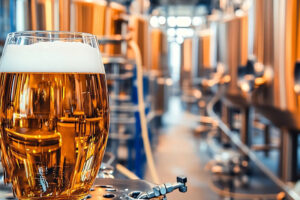
Fresh beer brewing equipment guide
With the rapid development of the craft beer market, more and more restaurants, bars and small breweries have begun to get involved in fresh beer brewing. Fresh beer usually refers to beer that has not been pasteurized or filtered. This type of beer usually tastes fresher and richer, so it is favored by consumers. However,

The Ultimate Guide to Starting a Nanobrewery: From Concept to Craft Beer Success
Ready to turn your brewing passion into a successful business? This comprehensive guide walks you through every aspect of starting a nanobrewery, from essential equipment to legal requirements. Whether you’re a homebrewer looking to scale up or an entrepreneur entering the craft beer industry, this guide provides the roadmap you need. Table of Contents What
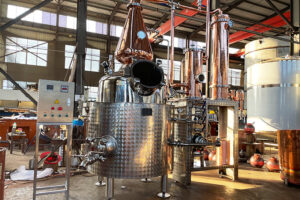
Nano Brewing Systems | Quality Brewing Equipment
Looking to enter the craft beer industry with a nano brewery? Understanding the right brewing equipment is crucial for success. This comprehensive guide explores everything you need to know about nano brew systems, from essential components to setup considerations. Whether you’re upgrading from homebrewing or starting fresh, discover how to choose the perfect nano brewery equipment for your venture. Table of Contents What Is a
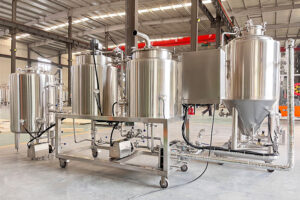
Complete Guide to Nano Brewery Equipment: Start Your Craft Beer Journey
Are you dreaming of starting your own craft brewery? Understanding nano brewery equipment is your first step toward brewing success. This comprehensive guide will walk you through everything you need to know about setting up a professional nano brewing operation, from essential equipment to practical considerations. Table of Contents What Defines a Nano Brewery? A
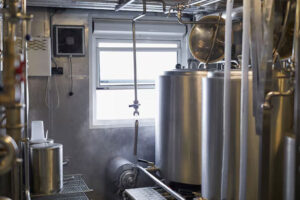
Essential Guide to Choosing the Best Draft Beer Equipment for Your Home Bar
Setting up your own home bar can be a thrilling adventure, especially if you’re a fan of draft beer. Imagine having friends over and serving them a fresh, cold pint just like at the pub. But to get there, you’ll need the right draft beer equipment. With so many choices out there, finding the perfect
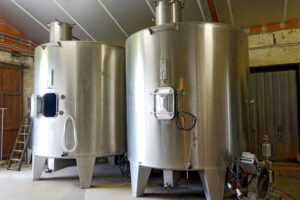
Essential Craft Beer Equipment Every Home Brewer Should Have
So, you’re thinking about diving into the world of home brewing? Awesome choice! Crafting your own beer at home is not only satisfying but also a fun way to experiment with flavors and styles. But before you start, you’ll need some essential craft beer equipment. Don’t worry, it’s not as complicated as it sounds. Let’s
Learn more about winemaking
If you want to learn more about winemaking, you can subscribe to our blog for updates. We will update the blog every week so that you can learn more about winemaking.
